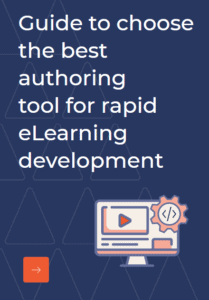Each year, thought leaders in the eLearning industry identify popular trends that can influence the industry and present their two cents worth as insights, reports etc. So, according to the “Global E-learning Market – Strategic Assessment and Forecast 2017-2022”, by Research and Markets’, “The global e-learning market is likely to grow at a CAGR of more than 6% during the forecast period.” The report also includes acumens on market growth drivers, trends, and restraints etc.
However, that’s not the report we are discussing today. We stumbled upon a report, The E-Learning Research Report 2017, Analysis of the main topics in research indexed articles, an offbeat report that analyses many online reports, and shares some unique insights. Here are our picks from the report.
20 most frequent topics
The report narrows down 20 popular eLearning topics from a list of 68 topics identified from various articles and reports published.
- Mobile Learning
- Assessment
- MOOC
- Virtual Reality
- eLearning Adoption
- Games & Gamification
- Platform
- Course Evaluation
- Tool Evaluation
- Learning Analytics
- Instructional Design
- Adaptive Learning
- Literacy
- Video
- Social Media
- Intelligent Systems
- Training
- eHealth
- Resources
- Blended Learning
And here’s a comparison chart for those terms starting from 2012 to 2017.
Search Topics Comparison
While most of the terms here are often discussed in eLearning blogs, forums etc. and are quite promising trends too. Let’s take a closer look at the few that still need elaboration.
Course Evaluation & Tool Evaluation
While the former is all about design, implementation and evaluation of specific eLearning modules, the latter is about the usability, quality and usefulness of eLearning development/authoring, deployment tools. While learning evaluation is an aspect closely focussed on, testing and evaluation of the course is something that definitely needs equal weightage, considering that the quality of content is something that cannot be overlooked.
Learning Analytics
As the report puts it, Learning metrics is based on data mining and data visualization with a view to decision making, and it includes textual analysis, natural language processing etc. The learning analytics that is popular is done through tracking and collection of user data, mapping it with behavioural changes and utilizing it for predictive analysis. An aspect that is gaining more importance considering the increased need for personalization.
Literacy
In digital terms it is not just about the knowledge and skillsets. According to the report, it is rather about digital literacy, information literacy and scientific literacy, to reduce the digital divide and promote social inclusion and citizenship. We often talk about existing technological know-how, or the tech savviness of the learners which actually falls under this topic too.
Intelligent Systems
The report describes it as design and use of intelligent tutorial systems, interactive tutorials and recommendation systems. With big data, analytics and more, the Business Intelligence systems are already becoming an integral part of Learning technology and eLearning too.
eHealth
The oddest one in the list, eHealth is nothing but eLearning publications about training specific to health field and about promoting health among the general public. eLearning is prevalently used in healthcare industry. From pathology to surgery eLearning in form of simulations, interactives videos etc. is prevalently used to keep the healthcare workers trained.
While the topics related games and gamification, AR, VR, mobile learning etc. have always been in the spotlight, there are many other aspects of eLearning too that can bring out the uniqueness in learning solutions. While those aspects may vary from eLearning vendor to vendor, the trick lies in how well it maps with your learning requirements.
So what are the unique eLearning features your organization looks out for?



